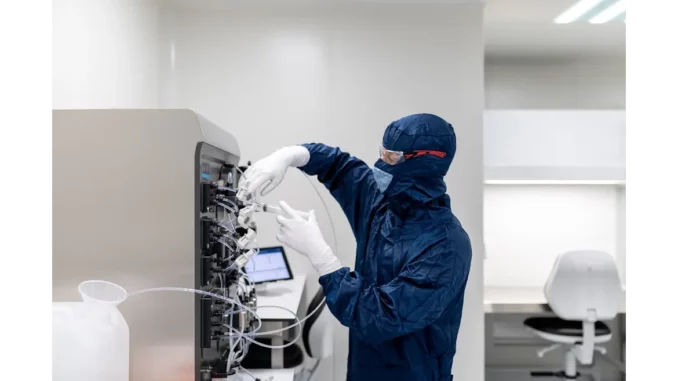
The molecular diagnostics market is on the brink of substantial growth, with projections indicating an expansion of USD 7.92 billion from 2024 to 2028, as outlined in a comprehensive report by Technavio. This anticipated growth is largely fuelled by the increasing prevalence of age-related diseases and the swift incorporation of advanced technologies such as artificial intelligence (AI) and next-generation sequencing (NGS). This article examines the transformative impact of these technologies on the molecular diagnostics landscape and explores the array of challenges and opportunities they present.
Artificial intelligence is playing a pivotal role in revolutionising the molecular diagnostics sector by significantly enhancing the accuracy and speed of disease diagnosis. Through the utilisation of sophisticated algorithms, AI can swiftly analyse vast quantities of genetic data, identifying patterns and biomarkers that might elude traditional diagnostic methods. This capability is invaluable in fields such as oncology, where early detection can profoundly improve patient outcomes. Furthermore, AI-powered tools are being harnessed to develop personalised treatment plans, tailoring therapies to align with the unique genetic profiles of individual patients. However, the integration of AI is not devoid of challenges. A significant hurdle is the requirement for large datasets to effectively train AI models. Additionally, concerns surrounding data privacy and the ethical use of genetic information persist. Nonetheless, the potential benefits of AI in enhancing diagnostic precision and efficiency make it a critical driver of market growth.
Next-generation sequencing (NGS) has emerged as a groundbreaking technology within the molecular diagnostics market. Unlike traditional sequencing methods, NGS facilitates the simultaneous examination of multiple genes or entire genomes, thereby providing comprehensive genetic profiling. This capability is crucial for diagnosing complex diseases, such as cancer, where multiple genetic mutations may be implicated. NGS is also instrumental in advancing personalised medicine; by identifying specific genetic markers, healthcare providers can select treatments most likely to be efficacious for individual patients. Pharmaceutical companies are leveraging NGS to unearth new therapeutic targets and biomarkers, thereby spurring innovation in drug development. Despite its transformative potential, the widespread adoption of NGS is impeded by high costs and the necessity for specialised equipment and expertise. Furthermore, inadequate medical reimbursements pose a challenge, as many healthcare systems have yet to fully acknowledge the value of NGS-based diagnostics. Overcoming these barriers will be crucial to unlocking the full potential of NGS in transforming healthcare.
The molecular diagnostics market is characterised by a fragmented structure, with numerous players vying for market share. Prominent companies such as Abbott Laboratories, F. Hoffmann-La Roche, and Thermo Fisher Scientific are investing heavily in research and development to maintain their competitive edge. Innovations in point-of-care testing, oncology diagnostics, and genetic testing are among the key trends shaping the market landscape. Geographically, the market is witnessing a notable upswing in Asia, which accounts for 38% of the market share. Nations such as China, Japan, and India are experiencing rapid advancements in healthcare infrastructure, creating fertile ground for market expansion. However, regulatory challenges and pricing pressures remain significant obstacles for companies operating in these regions.
In essence, the molecular diagnostics market is poised for a robust growth trajectory, propelled by advancements in AI and NGS technologies. While challenges such as high costs and regulatory hurdles persist, the potential for enhanced diagnostic accuracy and personalised medicine presents significant opportunities for stakeholders. As the market continues to evolve, navigating these challenges will be imperative for harnessing the full potential of molecular diagnostics in enhancing patient outcomes and revolutionising healthcare paradigms. The journey ahead promises a dynamic interplay of innovation, opportunity, and the relentless pursuit of improved health solutions.


Be the first to comment